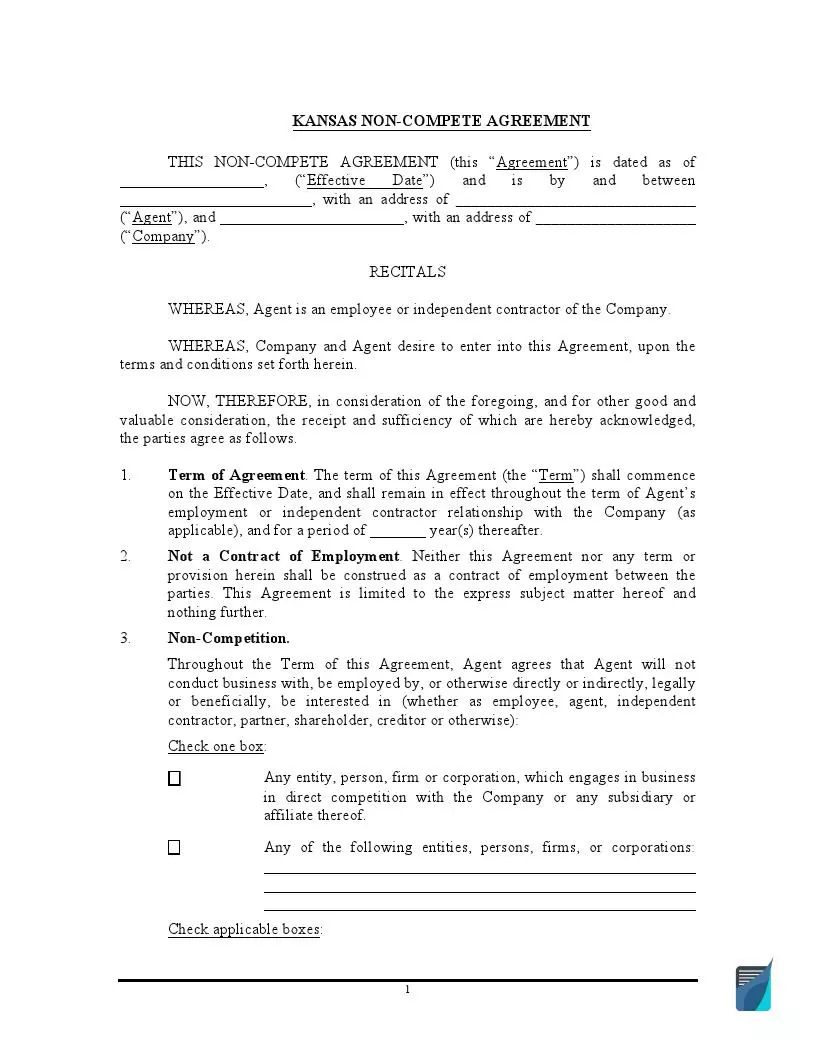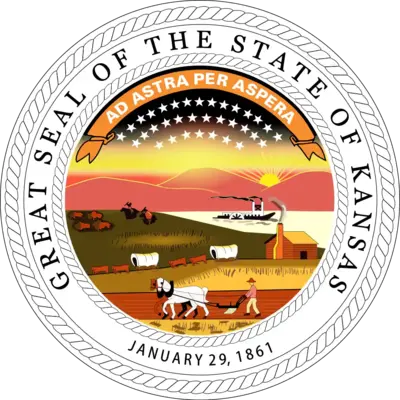Kansas Non-compete Agreement Template
Organizations and companies in Kansas frequently use a free non-compete agreement to protect themselves from any unlawful competition. Business entities often demand that their recently recruited employees sign a non-compete agreement template to keep them from working for contending organizations. However, the limitation period does not last forever. The employee only needs to agree not to work for competing units at a particular geographical reach and for a given time after quitting the job.

Build Your Document
Answer a few simple questions to make your document in minutes
Save and Print
Save progress and finish on any device, download and print anytime
Sign and Use
Your valid, lawyer-approved document is ready
Usually, the employer implements the NCA form while recruiting a potential employee. In most cases, the employee must complete and sign the document before starting to work at the respective organization. It seems very reasonable to require a specific statement from new staff members that they will not, under any circumstances, use the data they deal with (from Confidential Personal Data to Trade Secrets) to harm the disclosing company.
Here are some vivid examples of non-disclosure information in the state of Kansas (regarding an NCA):
- Trade secrets
- Confidential business information
- Loss of clients
- Goodwill
- Customer contacts
- Referral sources
- Reputation
- Special training
Kansas NCA Laws and Restrictions
No rule, law or official standard administers NCA compilation in Kansas. NCAs should comply with the primary legislative statutes and regulations and not contradict the general employment agreement. Non-compete agreements are consistently performed in Kansas. Responsible authorities may even mandate them, if sensible. Moreover, these documents should not be unfavorable to the public welfare.
Even though Kansas has no laws to oversee non-compete agreements, there are particular limitations. In the state, no business is permitted to put more restraints upon their employees than required to secure their Trade Secrets and Confidential Data. All enterprises must stay reasonable in terms of limitations, scope, duration, and geographic area.
Likewise, numerous states have strategies of restricting these agreements to particular kinds of jobs. It means that the states view these specialists as crucially imperative to the local economy and need to guarantee their free employment. Thus, these particular experts are entitled to change jobs without restrictions when necessary. In the state of Kansas, case law offers limited exemptions for accountants.

We provide a range of key Kansas templates to anybody seeking ease when filling out various papers in the state.
